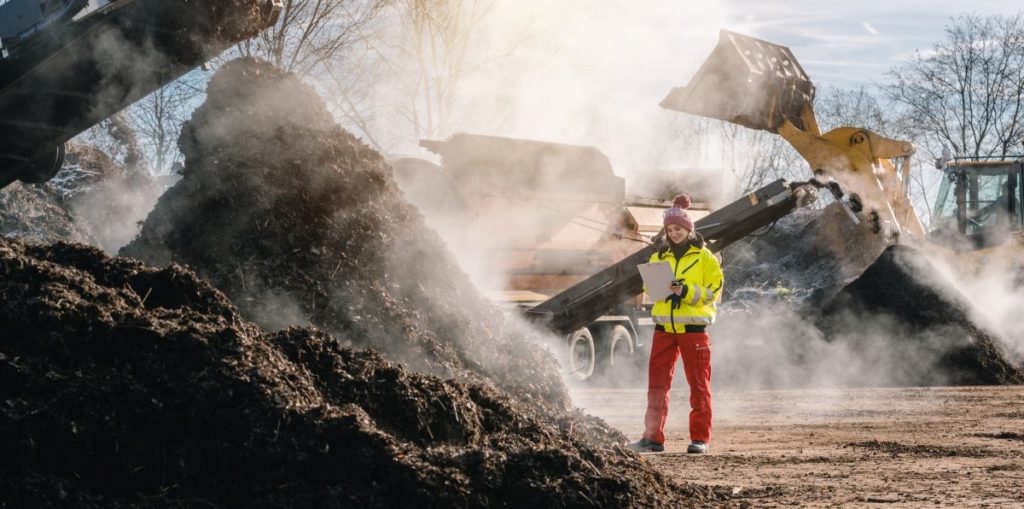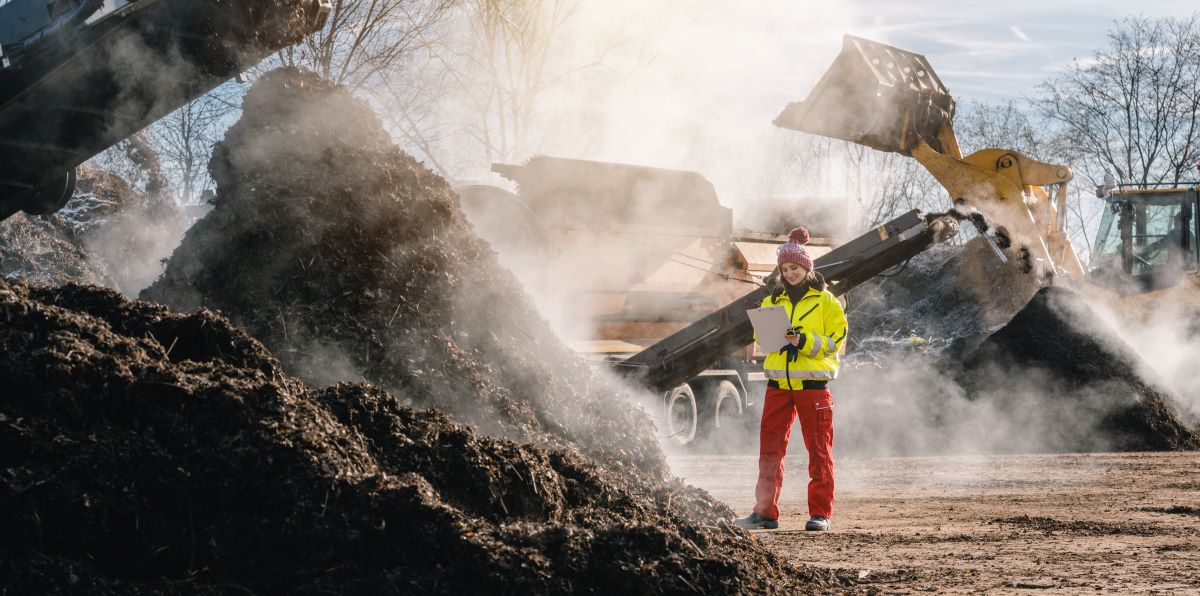
City Composting Catches On

Environmentalists love compost. We debate the merits of commercially made bins versus home-built. And we work to keep bins active in winter – even bring composters into our kitchens. But not everyone rhapsodizes the smell of healthy compost like book lovers at a library. Compostable waste makes up a third of all garbage in America. Composting must take place at a commercial scale to keep all that organic waste out of the landfill. Fortunately, municipal solid waste systems have begun expanding organics recycling programs for people who don’t compost at home.
City Composting
Organic matter doesn’t just make up a large portion of the waste stream. It is also the portion of the waste stream that generates landfill gas. Half methane and half carbon dioxide, landfill gas is a powerful greenhouse gas. A handful of landfills use this gas to create renewable energy. But most landfills burn the gas they generate. That practice makes landfills the third-largest source of human-related methane emissions in the United States.
Learning the science and art of composting is not practical (or appealing) for a lot of people. Composting takes time and space. And unless they are gardeners, most people don’t have a use for the compost they might produce. Even gardeners who enjoy getting hands-on with their waste management have to admit that weekly organics collection is more convenient. Large-scale municipal or commercial composting facilities are also more efficient than all but the most intensely managed home compost systems, which rarely get hot enough to break down bioplastics.
When cities first started recycling, they focused on commodities like paper, plastic, and metal, but not organics. Recently, many municipalities have even reduced or eliminated their recycling programs due to changes in the commodities market. While commodities recycling has been struggling, composting seems to be catching on. In 2012, there were only 100 American cities that included food and kitchen wastes in their composting programs. A decade later, that number had doubled. That’s still a small percentage, but thanks to the size of some of those cities, it means that nearly half the U.S. population has access to municipal composting service. Access to curbside compost collection is now almost as widespread as access to curbside recycling: one report estimates that only half of American households have access to curbside recycling, and only a third of recyclables are collected.
LA Tips the Balance
The most recent major city to implement composting is Los Angeles. Los Angeles Sanitation and Environment (LASAN) began composting in 2019 with a pilot program of 18,000 homes. This later expanded to 40,000. Then the state of California passed Senate Bill 1383 requiring jurisdictions to reduce the disposal of their organic waste in landfills by 75% by 2025. To comply with the bill, LA expanded from a pilot program to include all of its 750,000 customers in the curbside organics collection program. Customers received a green bin for yard waste, food waste, and food-soiled paper (like pizza boxes). As an incentive, they offered a limited number of free kitchen pails for scrap collection to customers on a first come, first served basis.
Like many municipal composting programs, LA does not accept compostable plastics, which are tested under conditions that do not match the commercial composting facilities that will process the organic waste. The compost produced from LA residents’ organic waste will be used by organic farmers.
Home Compost
If you’ve been throwing your food scraps and fallen leaves in the garbage, take a few minutes to check the website of your local solid waste utility. If they offer yard waste or combined organics collection, sign up for the service. In many communities, it’s already included in your garbage fees even if you don’t sign up. And you might find that you can reduce your garbage bill by switching to a smaller, cheaper garbage bin once you remove all your organic waste.
If your community doesn’t offer separate organics collection, consider home composting. You can find information on how to get started on Earth911, and there are a lot of books like Compost Science for Gardeners or The Compost Coach for people who really want to dig into the details. Even if you don’t have the capacity to compost all of your organic waste, composting can keep some of your organic waste out of the landfill. And if you live in an apartment, your gardening friends will always gladly take your finished compost off your hands.
This article contains affiliate links. If you purchase an item through one of these links, Earth911 receives a small commission that helps fund our editorial mission.
Services Marketplace – Listings, Bookings & Reviews